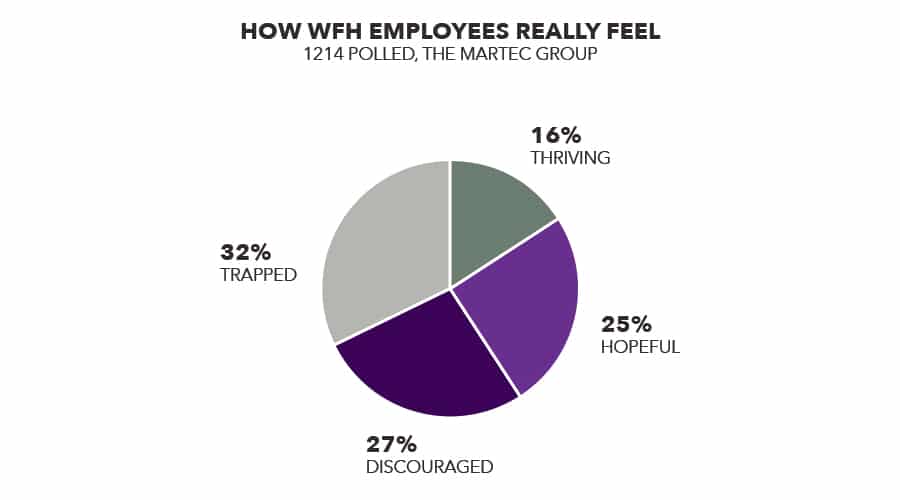Are you suffering from “Work From Home Fatigue?” We’re beyond the halfway mark of January… 2021. And many of us are still working from home, at least most of the time. Has the “honeymoon” worn off? Or are you dreading ever having to return to the commute and daily grind, determined to work in your slippers for eternity? Safe to say, the question of remote working is yet another topic of division.
As if post-holiday, winter blues weren’t enough, a host of other stressors have been building since early 2020. It’s important to identify the impact things like isolation, fear of becoming sick, caring for children, struggling to be productive from home, and whatever else is on your plate can have. Emotions are likely resembling a roller coaster… we’re all just waiting for the ride to end. You’re not alone. Even across the pond, employees told BBC News how working from home is taking its toll.
Work From Home Fatigue Has No Boundaries
“At first it was fun because we were all in this together, we have got to do it to keep everyone safe,” says Tara Hudson, a local council worker in East London. But after months of working on her laptop without a proper chair and desk, her back has her “in absolute agony.” When she was finally able to return to the office after explaining to her employer how difficult it was working from home, she noticed how much more productive she was. Having an appropriate desk chair to provide proper support coupled with two monitors on her desk, she quickly noticed an increase in productivity.
“It’s been one of the worst experiences of my life,” explains María Tovar, 36, a careers advisor at a company who has children aged eight and five living in Spain. María explains the stress of homeschooling her children, tending to household duties, and meeting all of her job’s demands. While it’s true that some have adapted well to working from home, it’s not as easy for everyone. Social psychology professor Francisco Díaz Bretones, of Granada University, in southern Spain, comments on the stress caused by having no control of the situation – no limit as to when it’s time for work and time for rest. Many employees, particularly parents of young children, are working around the clock in order to juggle their workload and caring for their children. It was tiring before the pandemic and has turned into chronic stress for many.

Other Work From Home Drawbacks
In 2019, 36 million Americans lived alone. During the pandemic, while Tara and María struggle with all of the activity in their homes, solo dwellers are fighting isolation. For many, the workplace and social events were the only places they interacted with others. Being forced to work from home has increased depression and anxiety – making it even more difficult to produce and be an effective remote employee.
Technology has also wreaked havoc along the way. Cutting off important Zoom meetings. Loss of files on laptops that were never set for daily cloud backups. While much of what we’ve accomplished as a workforce would not be possible without technology, we rely on it so heavily that when it’s not meeting our current demands, it simply raises the hurdles in front of us.
Coping with Work From Home Fatigue
While we all have high hopes for the success of vaccines, working from home will be the only option for many of us. (See our post on work-from-home productivity tips.) Realizing the issues to be addressed in your particular situation is step one. Are there tools or equipment you can request from your employer to help with your productivity and well-being? Does your family need to revisit the daily schedule to find better ways of sharing responsibilities and allowing each person time to complete their work uninterrupted? Are you taking care of yourself – mentally and physically? Daily exercise, reaching out by phone or video to friends and family, and eating healthy will all help in fighting off depression and simply making you feel better. If you’re an employer, check in on your staff – make personal calls and see if there’s anything that your teams think would help them.
At BT360, we’ve been working with our clients not only to address their office and furniture needs but learning about their situations and how they are managing change. If you are seeking ideas or have questions, we’re here for you. Always happy to share knowledge and help find solutions. Just give us a call or send a message – stay safe and be well!



